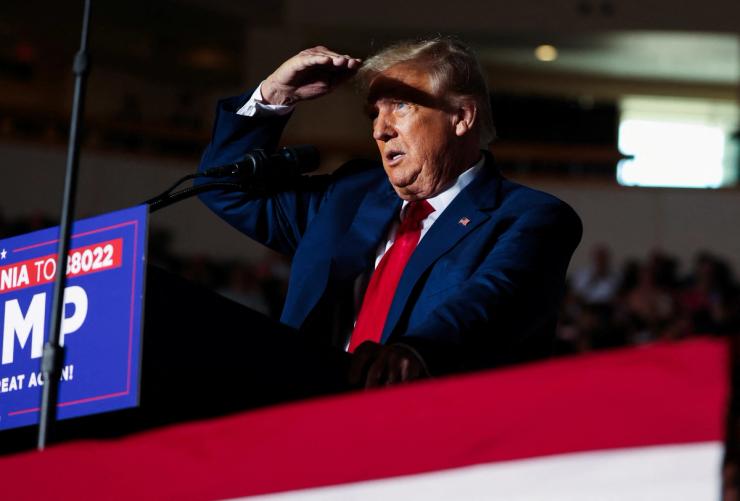The News
Former U.S. President Donald Trump was arrested for the third time Thursday, as he was arraigned in federal court on charges that he conspired to overturn the 2020 election.
The current Republican frontrunner for the 2024 presidential nomination was formally taken into custody at a courthouse in Washington, D.C., less than a mile from the U.S. Capitol, which was mobbed by Trump supporters on Jan. 6, 2021.
During his arraignment, Trump pleaded not guilty to four counts: three conspiracy charges, and obstruction of and attempt to obstruct an official proceeding.
“This is a persecution of a political opponent,” Trump said before boarding his plane after the hearing. “This was never supposed to happen in America.”
Like his other arraignments, Trump was not detained. He was asked not to communicate with potential witnesses in the case except through counsel. A hearing was set for Aug. 28.
We’ve curated reporting and insights on the latest in the case and its impact on the 2024 presidential race.
Insights
- This case hinges partly on whether Trump knew he was spreading falsehoods when he repeatedly said the election was fraudulent. To that end, the indictment lists 11 Republicans who told Trump he was wrong, including members of his administration and state officials in Arizona and Georgia. Their pushback against Trump could be crucial in a future trial. — The Washington Post
- Trump’s attorney John Lauro told NPR he hopes to have the trial moved out of liberal D.C., to a “more diverse area that has a more balanced political jury pool,” like West Virginia. But Politico’s Kyle Cheney pointed out that the trope that D.C. juries are destined to be biased against Trump “has not really played out in practice.” In two high-profile Jan. 6 cases, Cheney said, “juries have acquitted on some of the most serious charges and delivered nuanced verdicts.”
- The Wall Street Journal’s editorial board, skeptical of the indictment’s strength, said it will loom over 2024, resulting in “an election campaign that rotates between courtrooms and rallies.” A debate between the potential nominees, Joe Biden and Trump, “will be over one man’s age and infirmity and another’s attempt to stay out of jail.”
- Trump’s expected defense that his words and actions were protected by the First Amendment doesn’t hold up, Ian Millhiser writes in Vox. One reason is that the Supreme Court has ruled that soliciting a person to commit a crime is not protected speech. “Trump, for example, may not pressure a state elections official to ‘find’ fraudulent votes that will change the electoral result in that state, for the same reason that he could not legally tell a hit man, ‘I will give you $50,000 if you kill my wife.’”


